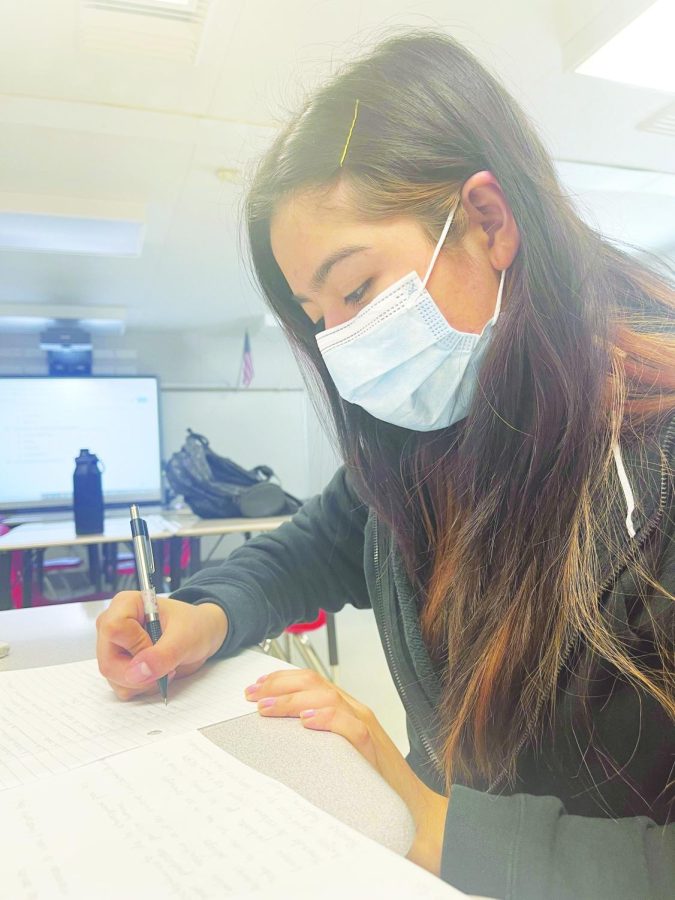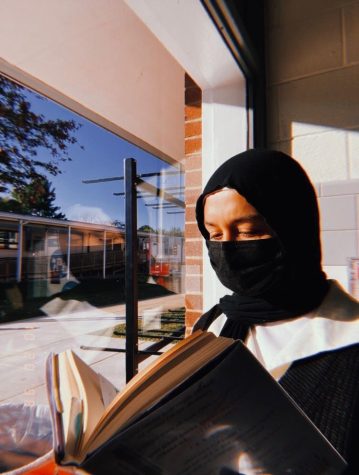Coming to America : Senior Melany Arevalo Guzman moves from Bolivia to America
There are many reasons why someone might have to make the decision to move to a new country and leave their home in order to achieve a greater future than what their home country provided.
Senior Melany Arevalo Guzman moved to America from Bolivia on Jan. 28, 2018. Guzman explained how to was a tough decision for her to make because she went through several problems that eventually she was able to overcome as she got used to this new country.
In America, most expect all who live in the country to speak the most common language, English, but as the diversity expands throughout the years, there are over 350 languages spoken and Spanish being one of the most spoken languages with over 37 million speakers.
“Although in Bolivia it was required to pass all English classes, it was very different to see and hear the fleuneery of the spoken people of this country,” Guzman said.
It was hard to adjust to a new language and at the same time adjust to the new environment Guzman was living in because she was used to less advanced placements back in Bolivia
“My adjustment process was a bit difficult at first since I missed the gastronomy of my country as well as my family,” Guzman said.
Guzman could not travel to the U.S. with all of her family because it was hard to leave everything all at once. It was an emotional farewell.
Guzman still felt like the gastronomy of Bolivia was still present here in the U.S.
“I was not affected by any cultural differences but rather it was something new for me to learn about other cultures and their traditions. I always thought that the USA embraced different cultures but I did not know that the biodiversity would be so vastly different,” Guzman said.
Here in the U.S, there are dances and traditions that are shared upon the Bolivian community. Guzman had participated in the folklorical dances Caporales, Morenada and Tinkus.
“My culture is based on traditions, customs, dances and other activities. In each region of Bolivia there are different traditions that connect and become one in. In contrast, in the US there are different cultures but not all traditions are the same,” Guzman said.
Bolivian food is made specially with certain ingredients compared to what the U.S. had offered. Guzman had missed the “made in Bolivia” dishes served to her while she was living in Bolivia.
“The biggest difference when moving was the food since the traditional food of my country was prepared very different than the traditional food prepared here,” Guzman said.
When Guzman lived in Bolivia, she had a schedule and a daily routine as well when she was getting ready for school.
“Regarding school, my routine was to wake up at 6:30 a.m, have breakfast, then brush my teeth and face and finally change. I used to leave my house around 7:30 a.m and my mother took me to school. I got to school around 7:40 or 7:50 a.m but it depended on the heavy traffic,” Guzman said.
A lot has changed personally for Guzman because she made a decision and was worried about what the U.S. held for her. The people that supported and motivated her the most were her family.
“The people who helped me get to where I am today were my parents and my family. My parents were the ones who motivated me to continue and taught me that a home is not the place where you live but the people who make it up,” Guzman said.
Guzman finishes her final year at AHS as a senior and plans on going to NOVA.

Freshman Brianna Montevilla is currently a first year international editor for the A-Blast. Her interest in journalism began when she worked on the yearbook...










